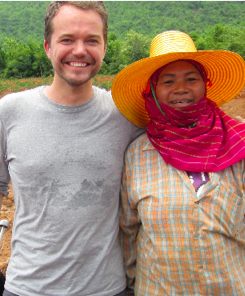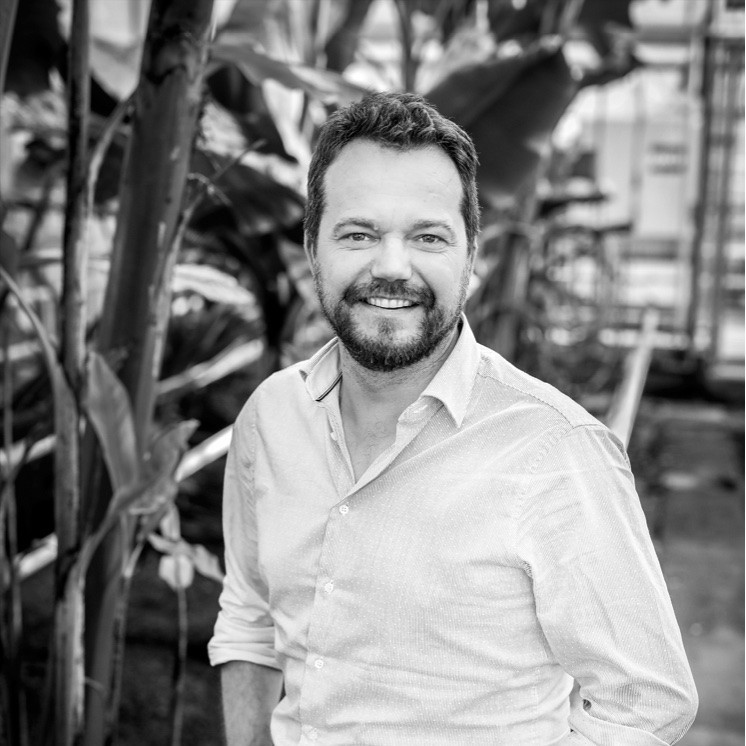Farming First is pleased to act as media partner for the Louis Malassis International Scientific Prize and the inaugural Olam Prize for Innovation in Food Security. Our new blog series will showcase stories from scientists nominated for these prestigious prizes.
The seventh blog in this series outlines the work of Professor Hervé Vanderschuren (ETH Zurich & University of Liège, Gembloux Agro-Bio Tech), nominated for the Louis Malassis International Scientific Prize for Young Promising Scientist.
Widely grown in tropical Africa, Asia and Latin America, cassava is the developing world’s fourth most important crop. It is the staple food of nearly a billion people in developing and emerging countries. However, cassava average yield barely reaches 20 per cent of its potential under optimal conditions. The difficulty to reach the full potential of the crop is due to multiple factors; suboptimal agricultural practices and the susceptibility to several stresses account for poor performance of the crop.
There is an urgent need therefore to improve farmer-preferred cassava varieties to increase cassava yields as well as to develop new approaches to reduce losses in the cassava production and value chain. Professor Hervé Vanderschuren, nominee for the Louis Malassis International Scientific Award for Young Promising Scientist has been working to develop locally adapted solutions to address this challenge.
Professor Vanderschuren’s approach to bringing the impact of the research performed in his team to countries where cassava is an important crop was multi-faceted, and focused on capacity building, technology transfer, collaboration-driven research objectives and the development of research tools and implementation of cutting edge technologies.
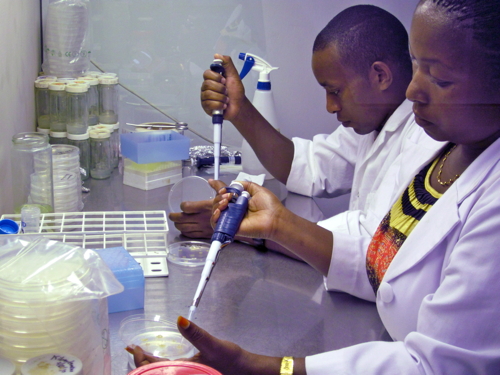
Training session on cassava transformation in the lab (Tanzania)
“Over the last years, robust cassava genetic transformation platforms have been established which we have transferred to collaborators in several laboratories in Africa and Asia. These activities aim at building a strong capacity in biotechnology in developing countries so that full benefits of those technologies are made available to local populations,” comments Professor Vanderschuren. “This is particularly in line with the 2013 Montpellier Panel report ‘Sustainable Intensification: A New Paradigm for African Agriculture‘ and the support that agricultural innovation is receiving from local and national governments.”
His scientific activities also aim to implement cutting-edge technologies in order to study cassava biology and its response to stresses, as well as to develop cassava with improved performance. “For this purpose, we develop robust assessment methods that are shared with local research centers to identify their best performing cassava varieties such as resistance to bacterial and viral diseases, improved shelf life performance, tolerance to drought stress” he says.
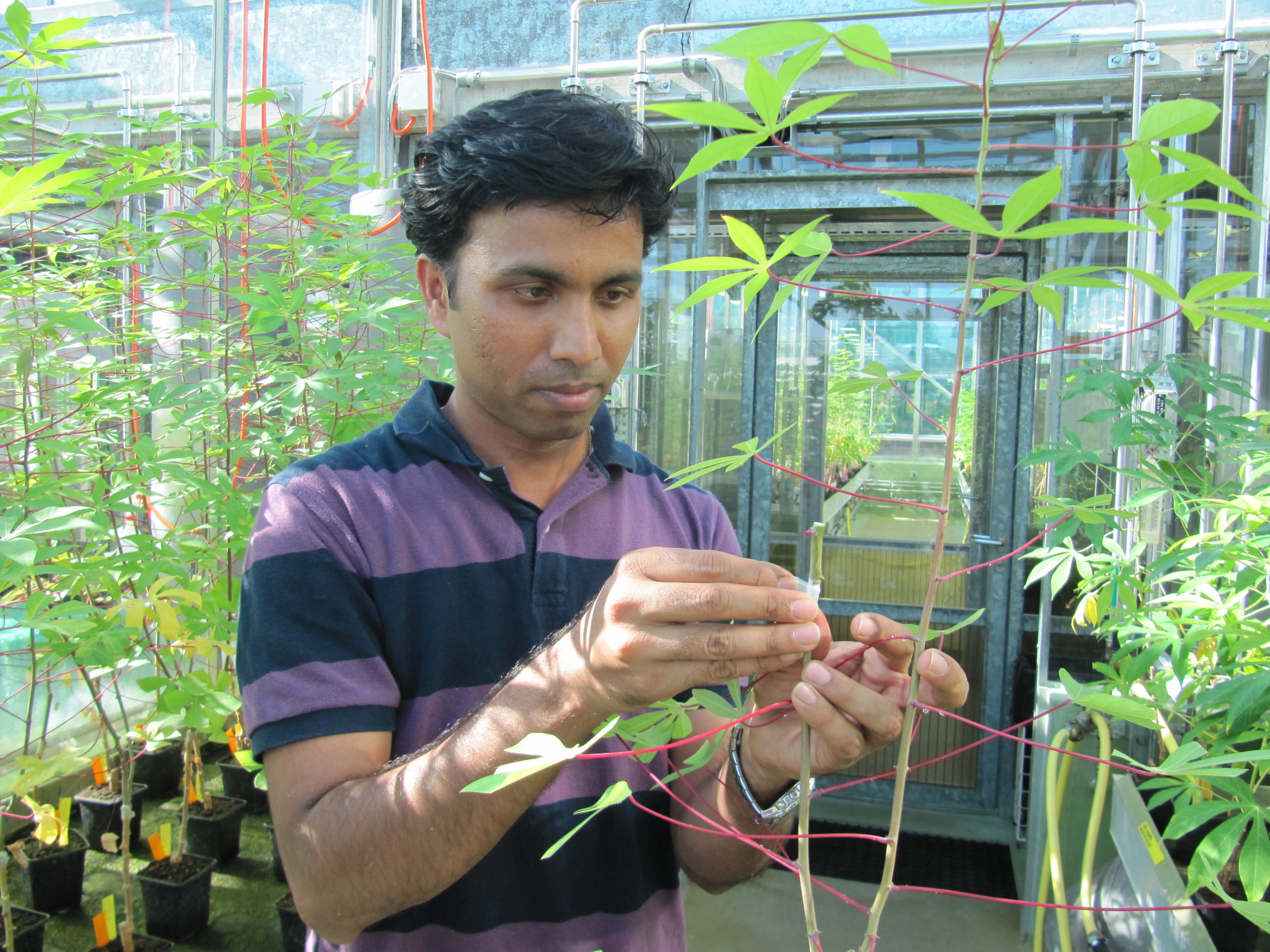
Assessment of natural virus resistance in cassava breeding lines (Ravi Bodampalli, PhD student)
Professor Vanderschuren’s research team at the Swiss Federal Institute of Technology (ETH) in Zurich also tests innovative approaches to generate cassava with improved performance. For example, the team has produced cassava with dual resistance against the two most important viral diseases in Africa. His team is also responsible for producing cassava plants with improved shelf life performance, as well as identifying natural products and molecules that can reduce post-harvest losses in the cassava value chain.
Throughout his young career, Professor Vanderschuren has trained over twenty students and researchers from partner institutions in Africa, Asia and South America. Most researchers have returned to their home country (including. Kenya, Ghana, South Africa, Colombia, Venezuela, India, Indonesia, Brazil) and are implementing the technologies learned under Professor Vanderschuren team’s guidance.
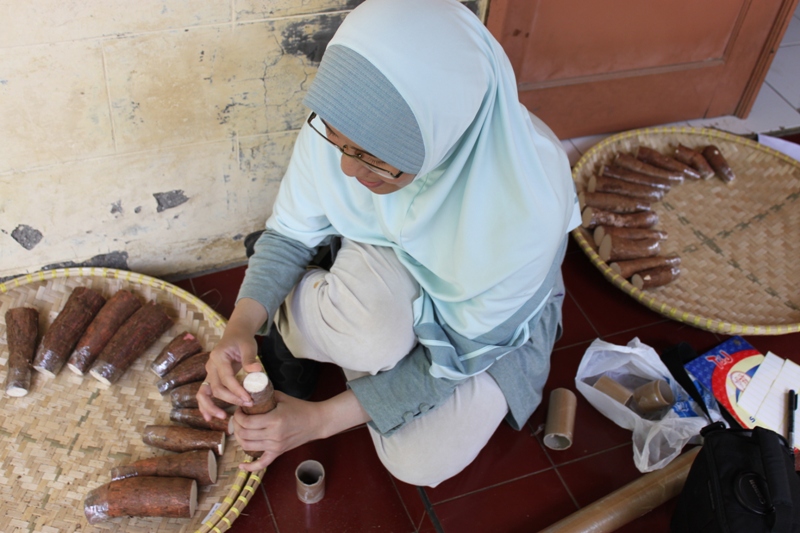
Assessment of post-harvest root deterioration in Indonesian cassava varieties (work done with collaborators at LIPI, Bogor / Ima Zainuddin, PhD student)
“The immediate benefit of these activities is that collaborators are able to demonstrate local capacity and build a comprehensive research programme on cassava and to improve local cassava varieties. The capacity in cassava biotechnology has been instrumental for local research teams to independently attract funding for research activities and product development” says Professor Vanderschuren.
“Innovation has the potential to address global challenges in agriculture provided there is unrestricted access to knowledge and technologies for scientists, farmers, consumers and industries. There is an urgent need for unconditional empowerment of local capacities to manage new technologies and to locally generate agricultural innovation in developing countries. This vision is the driving force for the collaborative scientific activities I have developed over the last 10 years with partner institutions in the South.”
The winners of the Louis Malassis International Scientific Prize and Olam Prize for Innovation in Food Security, will be announced at the Third Global Science Conference on Climate Smart Agriculture on 16th March, 2015.

